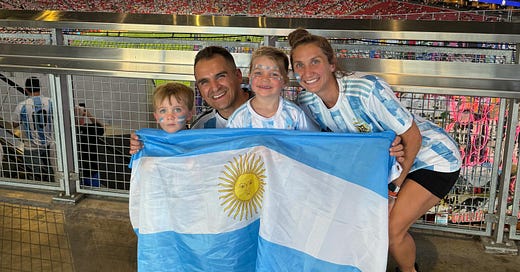Watching the Copa América Opener
The good and bad of seeing Argentina win a soccer game with my wife and kids.
Keep reading with a 7-day free trial
Subscribe to Storytime with Big Head to keep reading this post and get 7 days of free access to the full post archives.





